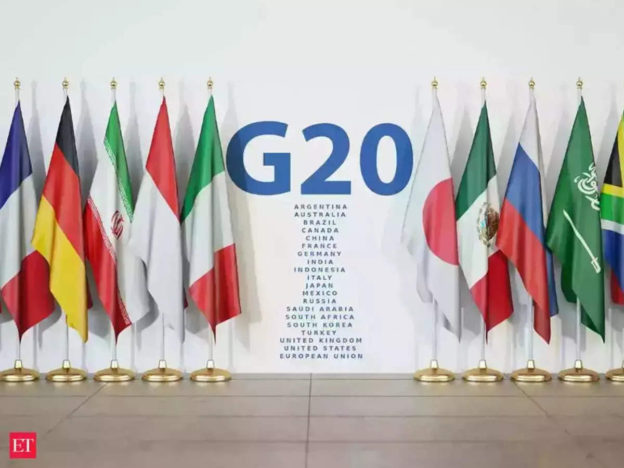India alone expects to achieve a target of 15 million inbound tourists in 2024, contributing more than $30 billion in earnings.
After India assumed G20 presidency on December 1, 2022, Prime Minister Narendra Modi announced that his endeavour would be to ensure that all decisions and actions taken by this multilateral grouping are “inclusive, decisive and action oriented.” In the ensuing nine months leading up to the summit-level engagement next month, it can be said with a fair degree of certainty that Modi has walked the talk and delivered on his promises.
New Delhi has initiated a wide range of activities in several sectors impacting national and global development, but none more so than in the oft neglected spheres of tourism and culture. By widening the scope and exploiting the full potential of tourism, India has found a “delightfully diplomatic way” to ensure both growth and prosperity. Similarly, due emphasis to culture has reinvigorated interest and instilled pride amongst the people of member states in their rich heritage.
Under India’s G20 presidency, efforts have been put in to accelerate development of tourism, trade and technology, and specifically use adventure tourism as a key vehicle to achieve ‘Sustainable Development Goals’ (SDGs) by 2030. Five tourism priority areas have been identified for the development of a resilient and sustainable tourism sector. These are: (1) Green Tourism; (2) Digitalisation; (3) Skills; (4) Tourism MSMEs & (5) Destination Management.
New Delhi has encouraged extensive use of the Tourism Working Groups (TWGs) platform to articulate and take forward the important message that tourism contributes significantly to “strong, sustainable, balanced and inclusive growth”. The focus has been on “rethinking and transforming tourism and harnessing adventure tourism as a catalyst for employment generation, sustainable tourism practices, and economic growth.
India alone expects to achieve a target of 15 million inbound tourists in 2024, contributing more than $30 billion in earnings. Its vision is to create 140 million jobs in the tourism sector and generate revenue of $56 billion in foreign exchange by 2030. The adventure tourism sector in the country is expected to grow at a rate of 20 percent per annum between 2023 and 2028, and reach a projected value of $2 billion by then.
The Union Territory of J&K can never be far off the radar when it comes to promoting India’s tourism agenda globally. In that context, the assumption of the G20 presidency for India has been both a diplomatic and an economic triumph. The three TWGs held so far have identified J&K as a global tourist destination and as a key industry for it accounts for about seven percent of the regional economy.
Post Covid-19 pandemic, the year 2022 recorded a tourism boom and the highest footfall ever recorded in J&K in the last 75 years. Apart from traditional recreational tourism, the vast scope for adventure, pilgrimage, spiritual and health tourism has also become apparent.
The abrogation of Articles 370 & 35A on August 5, 2019 has restored peace and stability across J&K after more than three decades of violence, strife and socio-economic restrictions. Holding the third G20 TWG in Kashmir sent out a diplomatic signal to the international community that Kashmir is safe for business and a great place for tourism.
Giving J&K a global-level exposure as a tourism hub has paved the way for the region’s economic development, improved living standards, reduced violence, and effectively addressed grievances. J&K has already registered a growth of 59 percent in the influx of foreign tourists since holding the G20 meeting in Srinagar in May this year. This proves that Modi’s TWG strategy is a runaway success.
Promoting culture at the bilateral and multilateral level too forms a key element of tourism, and in that context, India’s assumption of the G20 presidency, has resulted in the hosting of three Culture Working Group (CWG) meetings in Khajuraho, Madhya Pradesh (February 22-25, 2023); in Bhubaneshwar, Odisha (May 14-16, 2023) and in Hampi. Karnataka (July 9-11, 2023).
The focus has been on four priority themes — protection and restitution of cultural property; harnessing living heritage for a sustainable future; promotion of cultural and creative industries and creative economy; leveraging digital technologies for the protection and promotion of culture.
During CWG meetings, it was emphasized that in times of global stress and strain, culture could be one way to bring everyone together. A 4th CWG will be held in Varanasi, Uttar Pradesh from August 24-25 and will be followed by a G20 Culture Ministers meeting on August 26.
The 18th G20 Heads of State and Government Summit scheduled in New Delhi next month will mark the culmination of all G20 initiatives and activities held throughout the year under India’s stewardship. It has undoubtedly been an eventful year and several new milestones have been reached, while others have been identified for the future.
Besides building consensus on key result oriented issues, India’s G20 presidency will be remembered for espousing the age-old Indian belief in the concept of ‘Vasudhaiva Kutumbakam’ (which literally means that the whole world is one single family) and extending to the global outlook of ‘One Earth, One Family and One Future’!
https://www.financialexpress.com/business/defence-g20-making-progress-by-leaps-and-bounds-3222724/





